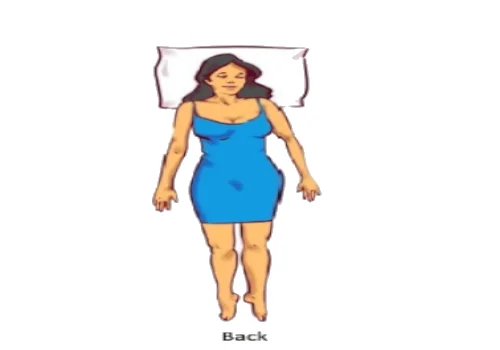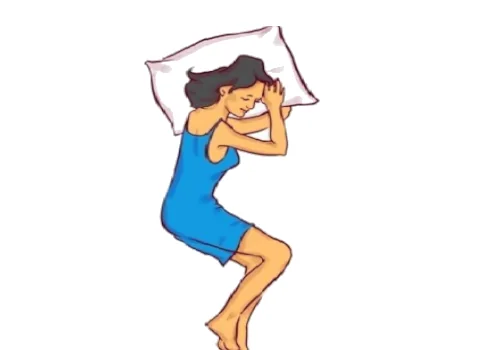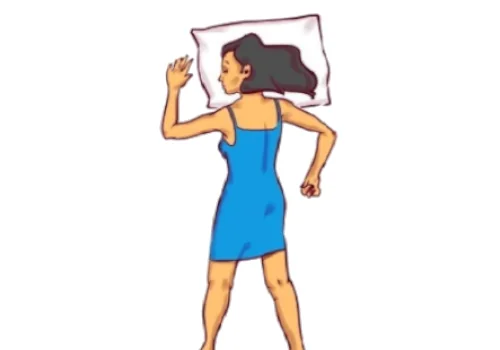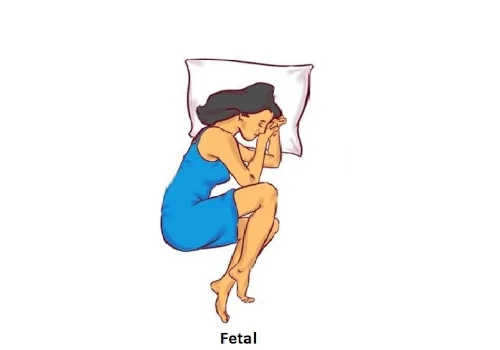How Sleeping Position Affects Your Health?

Did you know that, on average, we spend 25 years of our lives sleeping? That’s a quarter of our lifetime! And while it may seem like a lot of time, it is actually crucial for our overall well-being. Proper rest is essential for our physical, mental, and emotional health.
Sleeping has numerous benefits, some of which we may not even be aware of. Not only does it revitalize our body, but it also allows our brain to work optimally. It helps with memory consolidation, learning, and problem-solving. And let’s not forget the importance of beauty sleep – it can do wonders for our skin and overall appearance.
But with so much time spent sleeping, we must ensure we are doing it right. Our sleeping position plays a significant role in the quality of our sleep. It can affect our breathing, blood circulation, and spine alignment. I am sharing some insights on the different sleeping positions and their benefits.
So, which position is the best? It ultimately depends on your personal preference and any existing health conditions. The key is finding a comfortable position that allows you to get a good night’s sleep.
1. Back Sleeping
Lying on your back with a slight lift is considered the best position for spinal health. Not only is this position perfect for resting our spine, neck, and arms, but it also helps improve our overall posture.

Pros of Back Sleeping
- Spinal Alignment: Back sleeping is considered the best position for spinal alignment. It allows your head, neck, and spine to rest in a neutral position, reducing the risk of experiencing pain in these areas.
- Reduced Wrinkles: Unlike side and stomach sleeping, back sleeping doesn’t pressure your face, potentially reducing the likelihood of developing wrinkles.
- Acid Reflux: If your head is elevated, sleeping on your back can help prevent acid reflux symptoms.
Cons of Back Sleeping
- Snoring and Sleep Apnea: Back sleeping can exacerbate snoring and problems with sleep apnea. When you’re on your back, gravity can cause the tongue to block the airway, making these issues worse.
- Back Pain: While back sleeping can be good for spinal alignment, it can sometimes lead to lower back pain. This can be mitigated by placing a pillow under your knees to maintain the natural curve of your back.
- Pregnancy Concerns: Back sleeping is generally not recommended for later stages of pregnancy. This is because it can cause problems with backaches, breathing, the digestive system, hemorrhoids, low blood pressure, and decreased circulation to the heart and baby.
2. Side Sleeping

Pros of Side Sleeping
- Reduced Snoring and Sleep Apnea: Side sleeping can help reduce snoring and symptoms of sleep apnea by keeping the airways open and facilitating easier breathing.
- Improved Digestion: When you sleep on your left side, gravity can assist in waste processing in the intestines, leading to better digestion.
- Beneficial for Pregnant Women: Side sleeping, especially on the left side, is often recommended for pregnant women as it improves circulation to the heart, benefiting both the mother and the baby.
Cons of Side Sleeping
- Shoulder Pain: The pressure placed on one shoulder while side sleeping can lead to shoulder pain. Over time, this can result in discomfort and stiffness in the shoulder and neck.
- Premature Wrinkles: Like stomach sleeping, side sleepers may also experience premature wrinkles due to the constant pressure on one side of the face.
- Arm Numbness: Side sleeping can sometimes cause numbness in the arm and hand due to reduced blood flow and nerve pressure.
3. Stomach Sleeping

Pros of Stomach Sleeping
- Reduced Snoring and Sleep Apnea: Stomach sleeping can help reduce snoring and symptoms of sleep apnea. When you sleep on your stomach, your airways are more open, reducing the likelihood of snoring and interruptions in breathing.
- Comfort: Some people find this position comfortable, especially if they have been sleeping since childhood.
Cons of Stomach Sleeping
- Neck and Back Pain: Stomach sleeping can lead to neck and back pain. It’s difficult to keep your spine in a neutral position when you’re on your stomach. Also, in this position, your neck is turned to one side, which can strain the neck muscles.
- Nerve Pain: Sleeping on your stomach can also pressure nerves and cause numbness and tingling.
- Wrinkles and Breast Sagging: Stomach sleepers may experience premature wrinkles due to the constant pressure on the face. For women, this position can also contribute to breast sagging.
- Pregnancy Concerns: Stomach sleeping is not recommended for pregnant women as it can put pressure on the uterus and reduce blood flow to the fetus.
Everyone is different, and what works for one person may not work for another. It’s essential to find a sleep position that helps you get a good night’s sleep and wake up feeling refreshed.
4. Fetal Position

Pros of Fetal Position Sleeping
- Reduced Snoring: The fetal position can help reduce snoring and is often recommended for those with sleep apnea.
- Comfort: Many people find the fetal position to be the most comfortable and one of the most popular sleeping positions.
- Beneficial for Pregnant Women: Like side sleeping, the fetal position can be helpful for pregnant women. It improves circulation to the heart, which benefits both mom and baby.
Cons of Fetal Position Sleeping
- Back and Neck Pain: Sleeping in the fetal position can lead to pain in your back and neck due to the excessive curvature of the spine.
- Restricted Breathing: Curling up too tightly can restrict your diaphragm, leading to impaired breathing during sleep.
- Joint Stiffness: People with arthritic conditions may experience increased joint stiffness after sleeping in the fetal position.
Conclusion
In conclusion, your sleeping position has significant effects on your health. You must choose a position that meets your body’s requirements and encourages the ideal sleep quality. Remember that excellent sleep is about both amount and quality. So, make sure you’re not just getting enough sleep but also sleeping properly.
In light of the above, our sleeping positions play a more significant role in our health than we thought. It’s about getting the recommended 7-9 hours of sleep. It’s also about how we’re sleeping.
Read more:





